Just as your excitement grows for the end of teaching a semester, you’re thrown a curveball by the co-teacher. “You need to have a lesson plan for a two-week English camp by next week.” The anticipation dissipates. The clouds darken and that smile turns into confusion. English Camp?
This was how I felt when I first started teaching in Korea back in 2006. English “Camp” is not really what I perceived as “camp”. There are no camp counselors, cabins, tents, bonfires, rowing, or sleeping bags. I would say “camp” is just summer school with no grades. Actually, for most camps we experience at the elementary level, it’s an enjoyable summer or winter babysitting. For middle and high school, it’s a bit more academic with a touch of fun.
Depending on what school you are working for, camp in Korea can be hit or miss when it comes to organization. Some camps provide a curriculum that you must follow while others are free to do as you see fit. Others are taught at a central school in the district with many of the neighboring foreign teachers involved.
PHOTO (Left): High School students interview a foreign teacher to solve a murder mystery.
PHOTO (Right): After a semester of studying, it’s time to take a break for these high school students.
If you’re starting an English Camp from scratch, here are 7 quick tips to surviving until you board a plane for vacation.
1. Make lessons that are simple and enjoyable
Most students who join camp are not there by choice. Parents like to push the extra “vacation classes” because it’s better for a student to be at school than at home wasting away their brain in front of the TV. Classes should be fun and somewhat easy. You do not want to push the students so much that they dread English even more. Use an English level that is comfortable for students. Students should be using the English ability they developed during the semester. Topics are more enjoyable if the students can relate to them directly, so when preparing, think like a student.
PHOTO: These elementary students learn to make “Shaken Cup Bibimbap”
2. Have a cooking class
Nothing attracts students more to a classroom than announcing you will be having a cooking class. Usually, no one is absent on these days. The menu can range from something that is seasonal to something that is purely Korean, except that it’s explained in English. Cooking a Korean dish in English gives students the opportunity to learn the different names of the ingredients in English but also the step-by-step format of a recipe. When I have a cooking class, students will form teams so that they can improve their teamwork skills.
PHOTO (Left): After reading the storybook “Penguin” for winter camp, students play a ‘freeze tag’ game taking the roles as lions and penguins.
PHOTO (Right): After reading a mystery story, students debate it’s contents of violence.
3. Spread some stories
Not many of us have time (or the will) to read a storybook during the semester. Read one during camp. Find an easy storybook to read and create a project to go along with it. Books I’ve used have been “We’re Going on a Bear Hunt”, “Bibimbap”, “The Popcorn Story” and many others. There are many hands-on activities you can do that relate to the story. These can include role-playing, storyboarding, debating, numerous worksheets, as well as simple arts and crafts.
PHOTO (Left): Students prepares to take a swing at a water balloon for their ‘Summer English Olympic Games”.
PHOTO (Center): Students get in position in the snow during a Winter Camp Photohunt.
PHOTO (Right): Students get wet participating in an outdoor sponge relay race.
4. Go outside and enjoy the weather
Weather can be unpredictable in the summer and winter. If you’re having perfect weather, get out of the classroom and do outside activities. Most kids don’t enjoy being stuck in the classroom all year, so it’s literally a breath of fresh air having outdoor classes. During the summer, I like to use water activities to get the kids more excited. Do snow activities when the classroom heaters start to fry your brain. There are limitless activities you can do outside and kids will love it.
PHOTO: A team of elementary students use their camera to collect photos for their Photohunt.
PHOTO: A student strapped with a GoPro interviews his classmates.
5. Bring a camera and take photos
If you have camp classes with students you don’t normally see during the school year, taking photos with “the foreigner” is ideal. I purchased an Instax (Polaroid type camera) to take photos with students and “autograph” the photo. Students adore them and are great souvenirs to share with Mom and Dad. Strap a GoPro on a student’s head and have them walk around asking other students questions. You will have some hilarious POV videos of students speaking. At the end of camp, I make a short music video with all the photos and videos taken from camp. Students can download and share their English Camp memories with their friends and family.
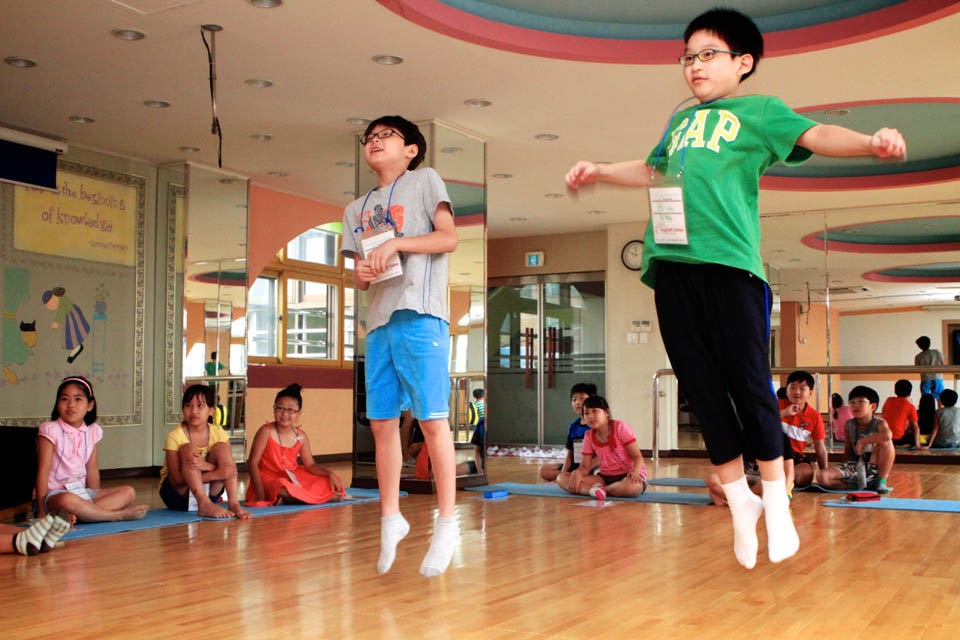
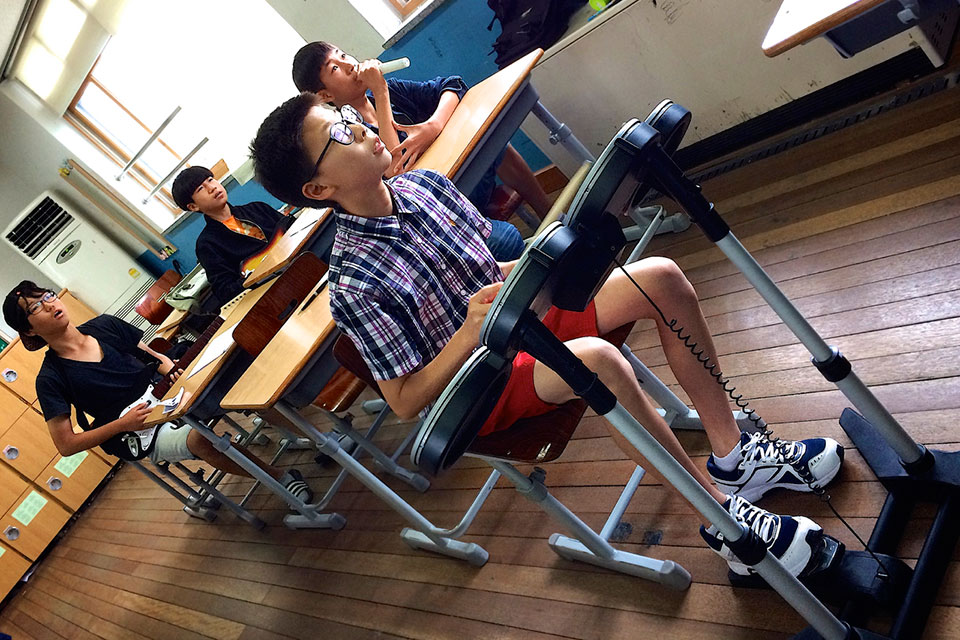
PHOTO (Left): Students practice their motor and directional skills using Xbox’s Kinect device.
PHOTO (Right): These middle school students get a taste of what it’s like to be The Beatles.
6. Technology is alive, use it
I use my Xbox 360 at school whenever I have a camp. Most students don’t own one so it’s like opening a treasure chest. I often use the motion sensing “Kinect” device in my lessons because it allows lower level students to learn commands about directions. For the higher level students, I plug in the Rock Band series and have students learn a song and perform it. It’s a amusing to watch students play the toy guitar like a gayageum.
PHOTO: A teacher interacts with students during the “shopping time” of English Camp.
7. Get to Know the Students
English Camp is the best time to interact with students while not in a traditional classroom mode. Making students more comfortable with English is one of the best lessons you can offer. Allow students to speak to you about any topic on their mind. Spend break time chatting to students who WANT to speak English to you.
PHOTO: Participation from students make camps more enjoyable.
With the world of SNS, offer students opportunities to talk to you through Facebook or KakaoTalk/Story (this is of course done with an account specifically for students). I still talk to students who I taught for only one week during a camp 4 years ago. It will help them build confidence and you will feel rewarded in the end.
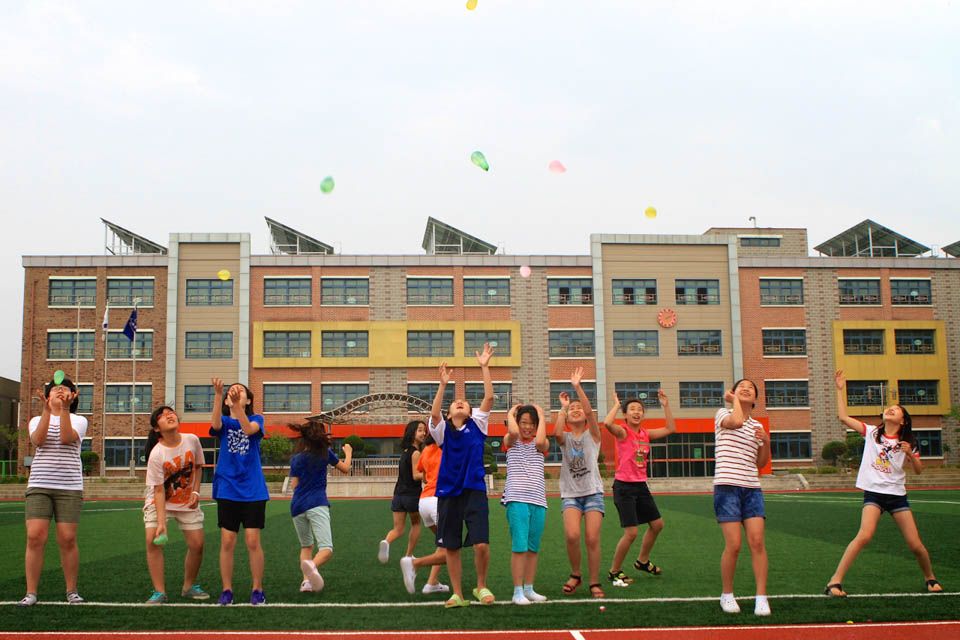
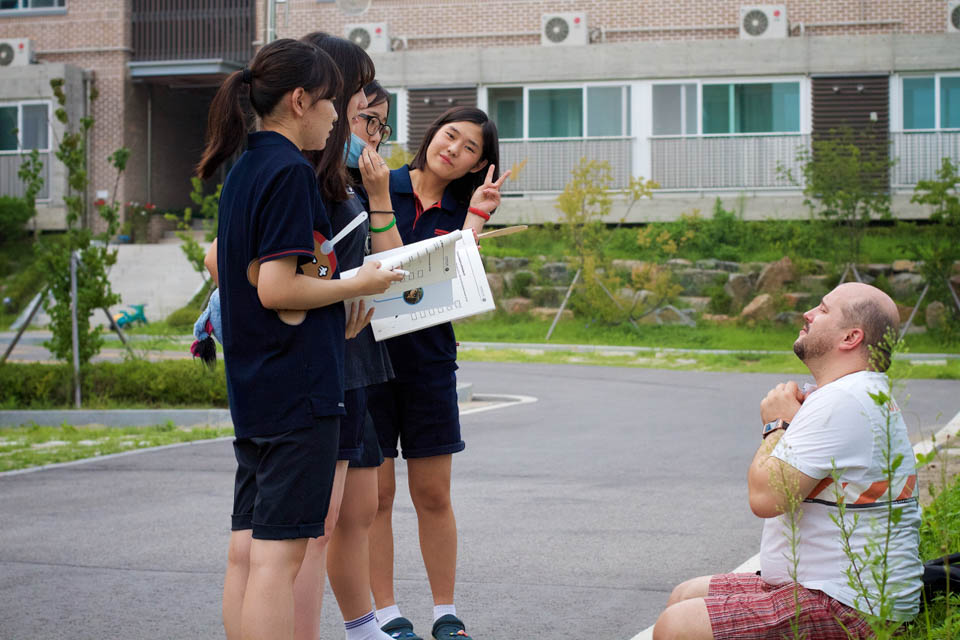

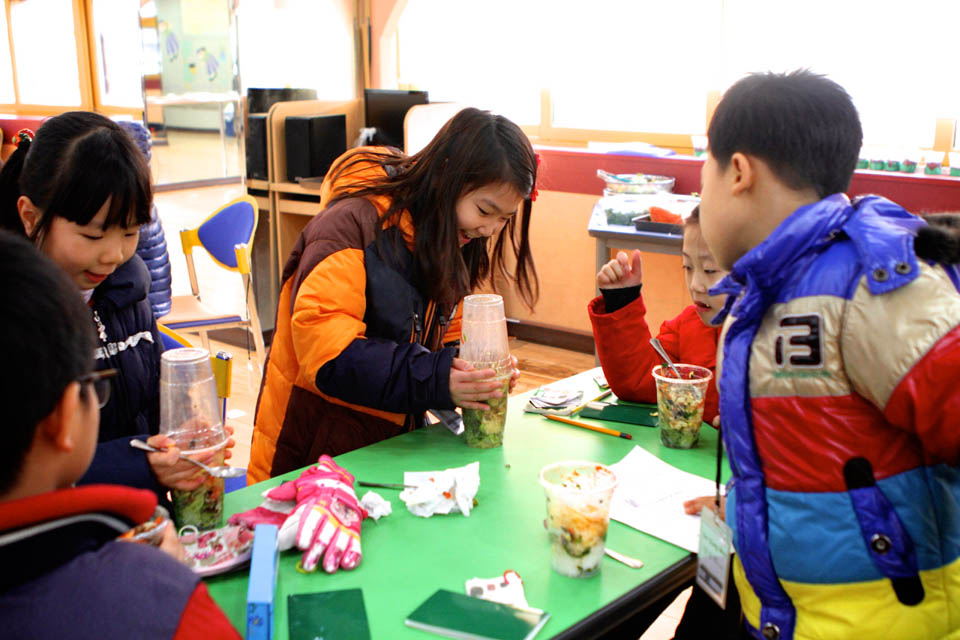
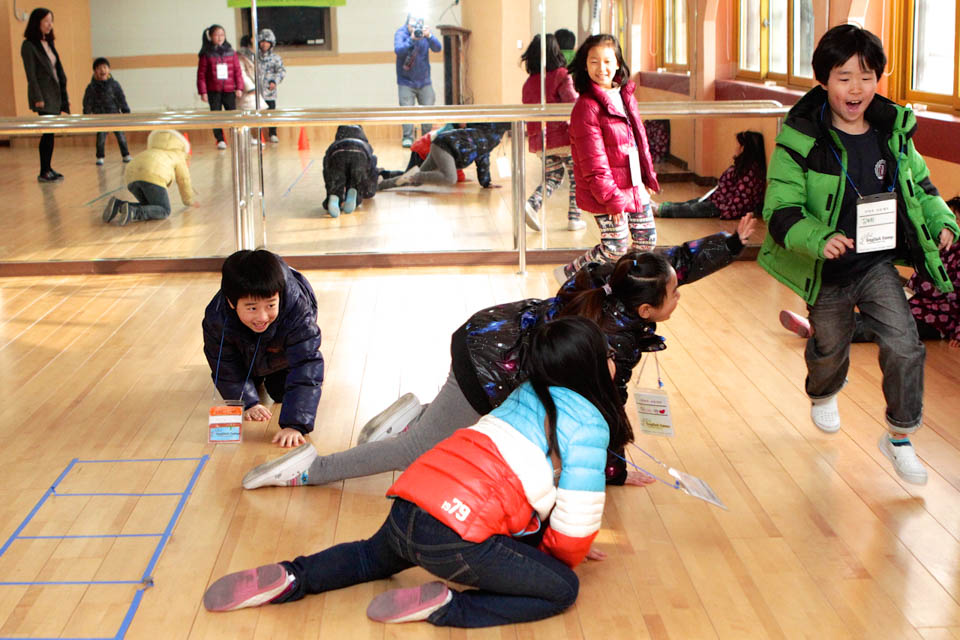

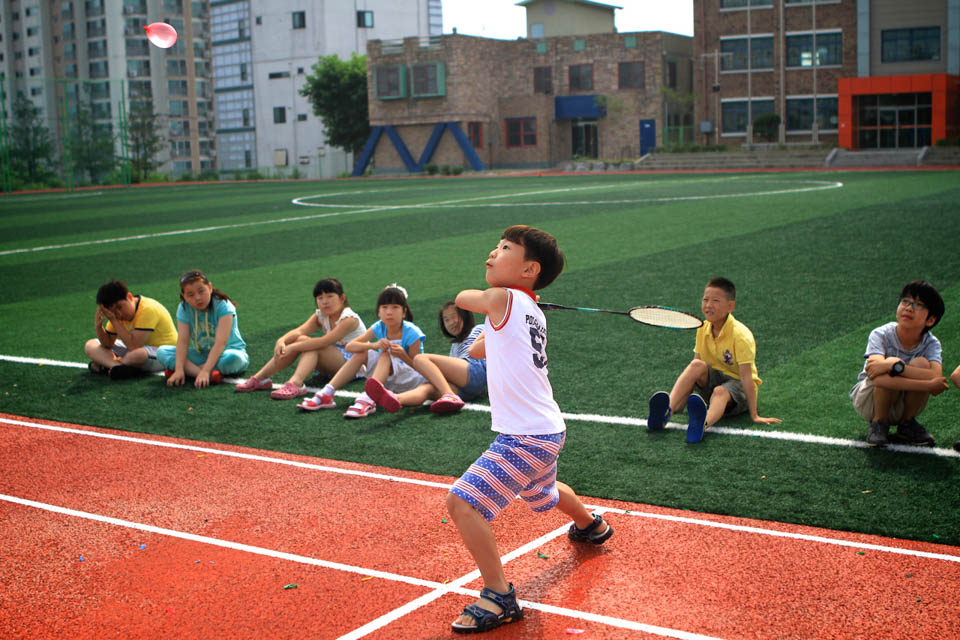
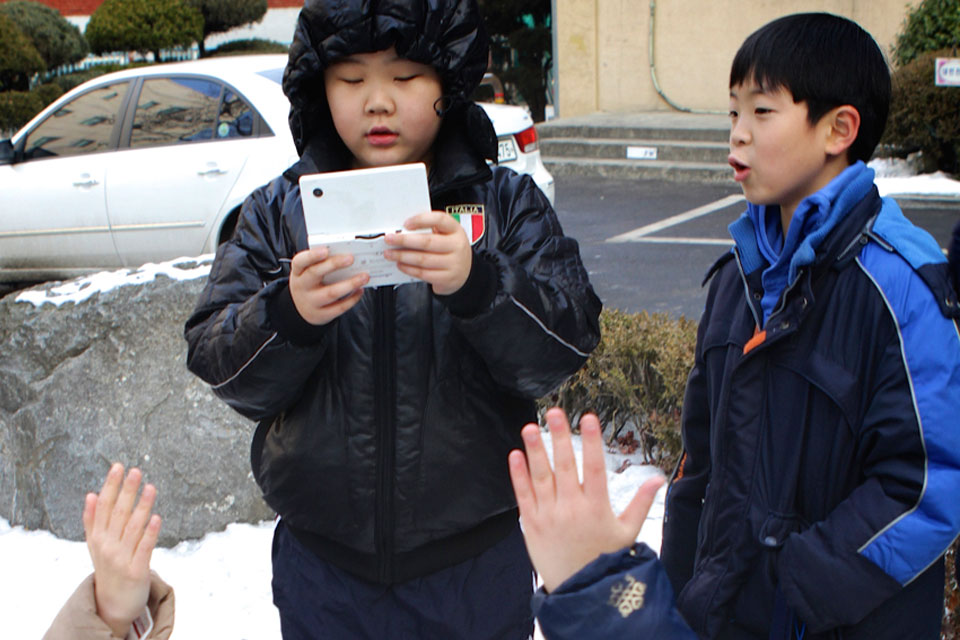
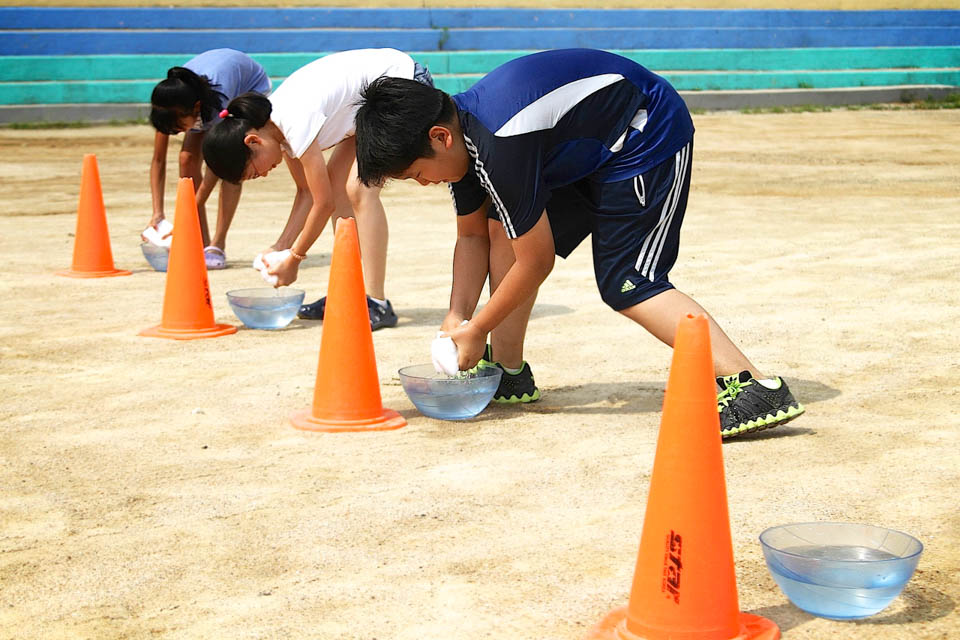
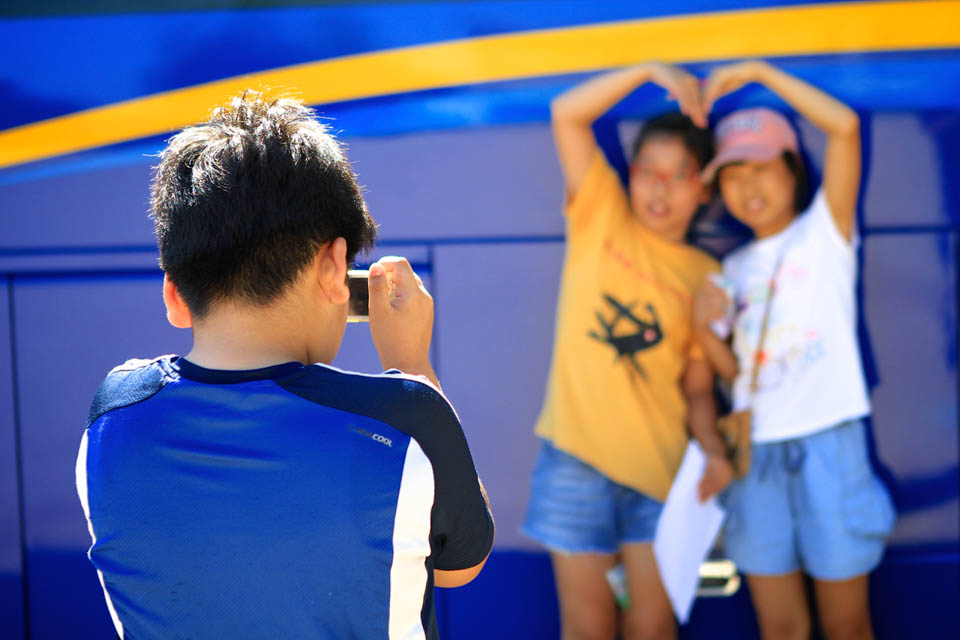
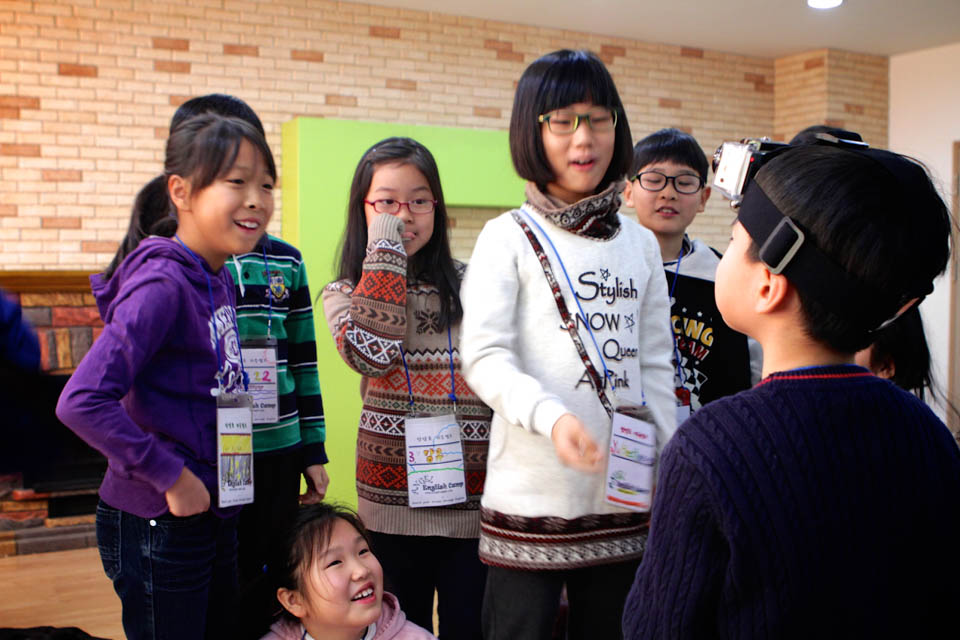
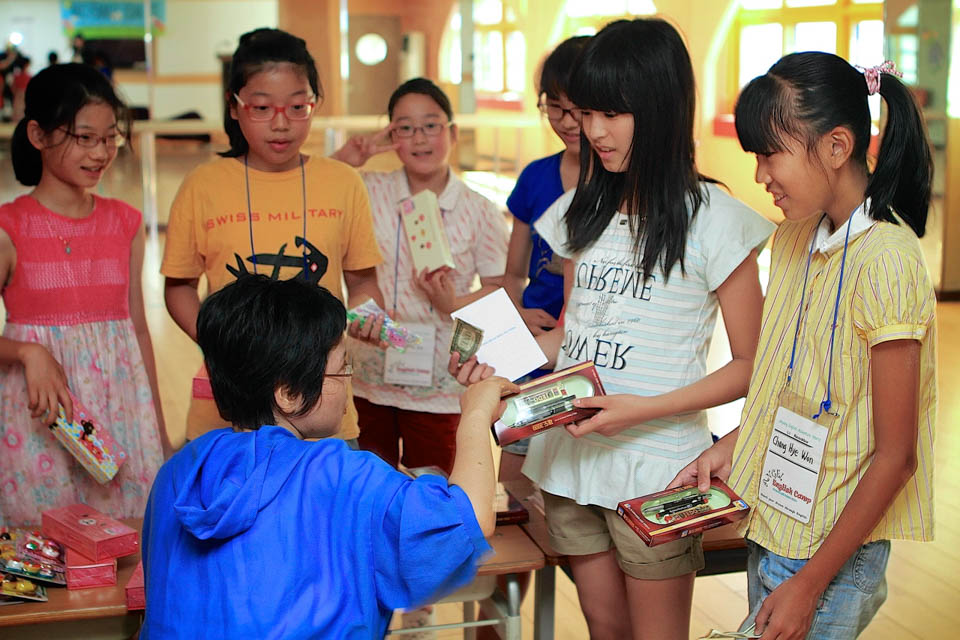
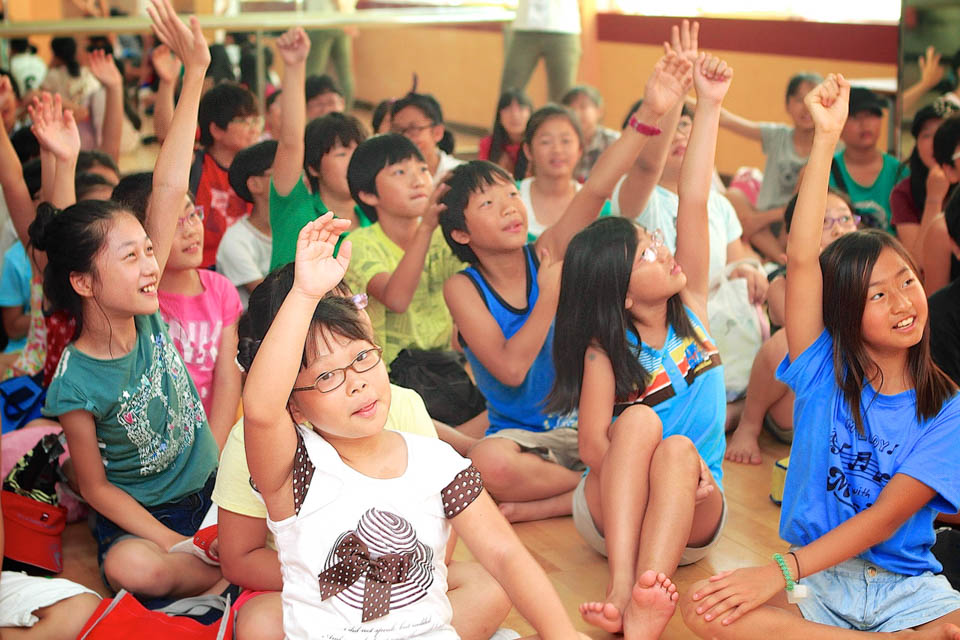





Great tips – very useful. I’m teaching a camp next week with the Olympics as the theme. What activities worked really well for your “Summer English Olympics Games” camp?
I made a specific day during camp where they would definitely get wet. Kids brought an extra dry set of clothes to wear after they are drenched in water.
Before goong outside, i talked about the games we would be playing. i told them some commands they would need to know.
Some crowd favorite games:
Passing a bucket or container with holes in it, over and under until they can fill another container. You can ask them to sing a song you learned earlier that week for more amusement.
Jump Rope Chants: teach them some jump rope chants. Have each team jump rope and sing the chant while the other team stands on the side squirting them with water guns. The winning team is the one who can continue to jump rope and complete the chant.
Balloon Toss Spelling: your typical balloon toss but spelling each letter of the word with a toss of the balloon.
Quiz Wet Squad: this can be fun for the teacher. i line up all the students and point a water gun towards their body (sometimes their face…depending on how cool i am with the student). I quiz them on things we learned in class. If they are incorrect, they get sprayed.
These are just a few examples i can think of at the moment. Hope it helped a little.